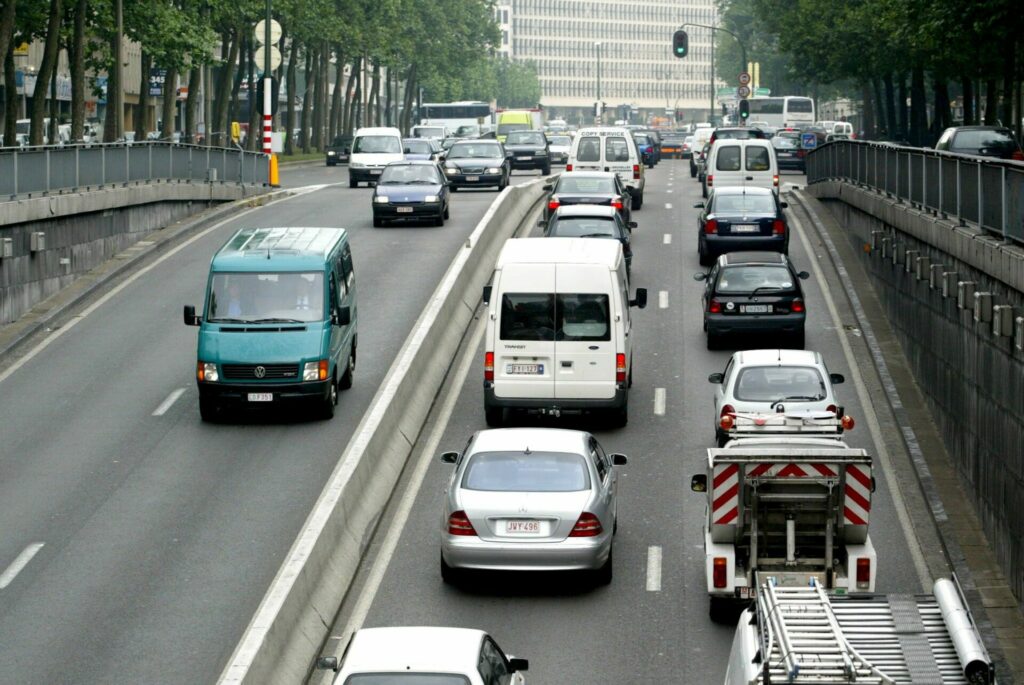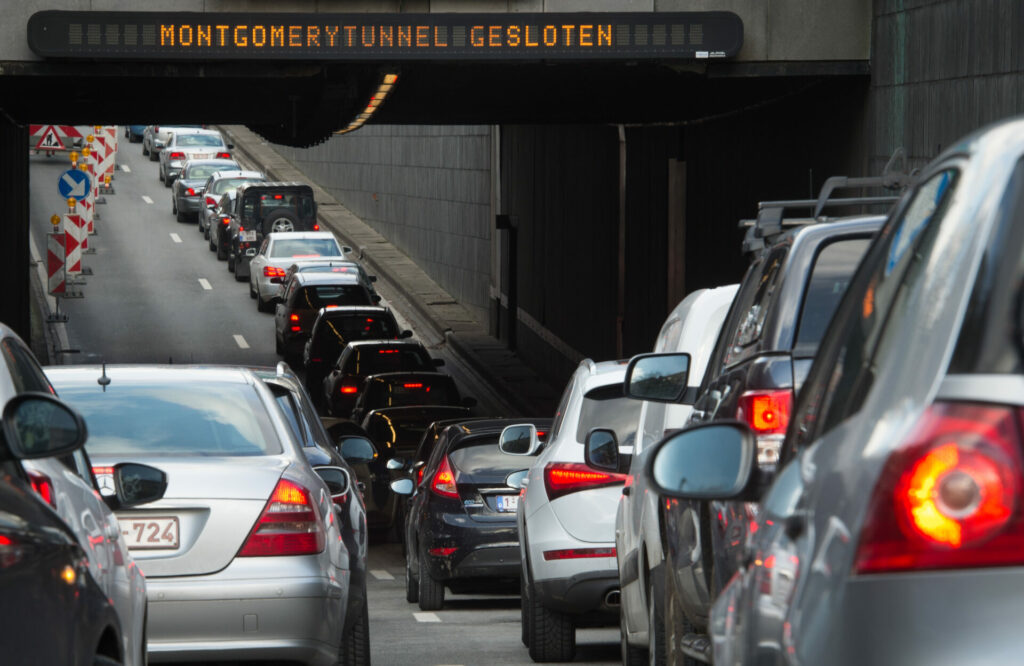It took about 27 minutes to cover ten kilometres by car in the Brussels-Capital Region in 2023, according to the annual traffic index by Dutch navigation company TomTom – making Brussels the tenth most congestion-prone city in the world.
At the European level, the Belgian capital ranks as high as fifth (after London, Dublin, Milan and Bucharest). This means that last year was worse for traffic than 2022, when Brussels ranked 14th worst in the world and seventh worst in Europe. In 2023, it took drivers 20 seconds longer to travel ten kilometres than the year before.
"Indeed, there is still too much congestion in our city. That is why we are pushing so hard for alternatives: the only way to get less congestion is less car pressure," the office of Brussels Mobility Minister Elke Van den Brandt (Groen) told The Brussels Times.
"We do that through extra tram lines, bus lines, extra cycle paths, and extra trains in the capital," she added. "And that must be reinforced with an intelligent kilometre charge, Smart Move, for which we have been advocating for years, and for which everything is ready to finally go into effect."
Brussels to Oklahoma
Other highly-congested Belgian cities last year were Leuven (120th place), Liège (147th), Antwerp (157th) and Mons (191th). Of the 387 ranked cities, Oklahoma City in the United States was deemed the least congested, with an average of eight minutes and 40 seconds to travel ten kilometres.
TomTom bases this Traffic Index on data from over 600 million navigation systems and smartphones in 387 cities in 55 countries. Based on that, the company compiled a ranking of cities that suffered the most congestion in 2023.
The ranking only considers traffic in city centres (which for Brussels coincides with the regional borders). Last year, 14 November proved to be the day with the biggest traffic jams in the Capital Region: on that day, it took an average of 33 minutes and ten seconds to cover ten kilometres.

Credit: Belga / Yves Boucau
Of the 257 hours a motorist spent on Brussels roads on average in 2023, they spent 104 in traffic jams – which comes down to four full days and eight hours, or as TomTom said: the time you need to read 51 books. Car traffic was especially slow on Thursdays between 17:00 and 18:00.
In terms of average speed on Brussels roads during rush hours, motorists drove barely 18 km/h in 2023 – roughly as fast as a bicycle or e-scooter. The busiest road last year was the R20, better known as the Small Ring Road around the historic city centre.
Related News
- The year of the jam: Flemish roads see record traffic in 2023
- The Belgian commute: Car still king, but record number cycling to work
- Cost of traffic jams in 2023 estimated at over €5 billion
Additionally, the average fuel cost of driving a petrol car in rush hour in Brussels was about €741 per year, of which €159 is due to congestion. According to TomTom, this comes down to approximately eight average-sized tanks of petrol.
"More than half the world's population lives in cities. Traffic jams therefore have a huge economic, ecological and health impact," said Ralf-Peter Schäfer, deputy director of the Traffic Department at TomTom. "We urgently need to find solutions to this."

